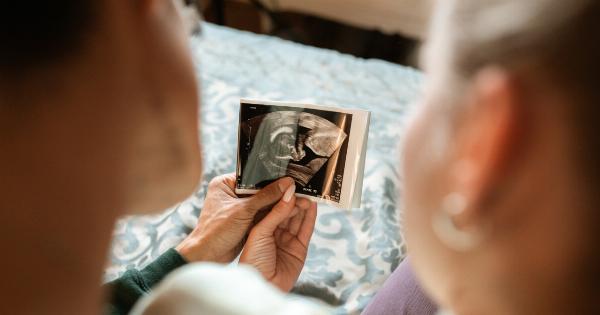Meningitis B, also known as meningococcal disease, is a serious bacterial infection that can cause inflammation of the brain and spinal cord.
It is caused by the bacteria Neisseria meningitidis and can lead to severe complications and lifelong disabilities if not treated promptly. The disease is particularly dangerous in children, as their immune systems are still developing.
Fortunately, there are effective measures you can take to prevent Meningitis B in your child. By following these guidelines, you can help minimize the risk and keep your child safe from this potentially life-threatening condition.
1. Understand the Signs and Symptoms
Being able to recognize the signs and symptoms of Meningitis B is crucial for early detection and treatment. Common symptoms include:.
- High fever
- Severe headache
- Stiff neck
- Nausea and vomiting
- Sensitivity to light
- Seizures
- Confusion or difficulty concentrating
If your child experiences any of these symptoms, seek medical attention immediately.
2. Ensure Routine Vaccinations
Vaccination is one of the most effective ways to prevent Meningitis B. Make sure your child receives all the recommended vaccines, including the meningococcal conjugate vaccine (MenACWY) and the serogroup B meningococcal vaccine (MenB).
Consult with your child’s healthcare provider to ensure they are up to date with their immunizations.
3. Promote Good Hygiene Practices
Practicing good hygiene is essential for preventing the spread of Meningitis B. Teach your child proper handwashing techniques, including washing with soap and water for at least 20 seconds.
Encourage them to avoid sharing utensils, drinks, or personal items with others, as this can increase the risk of transmission.
Additionally, make sure your child keeps their environment clean and disinfected, especially during flu seasons and outbreaks.
4. Educate Your Child and Others
Teach your child about the importance of personal hygiene and how to avoid behaviors that may increase the risk of contracting Meningitis B.
Explain the significance of not sharing personal items, covering their mouth and nose when coughing or sneezing, and avoiding close contact with individuals who appear sick.
Encourage your child to raise awareness among their friends and classmates, as educating others about Meningitis B can help prevent its spread within the community.
5. Be Aware of Close Contacts
Meningitis B can spread through close contact with infected individuals, particularly through respiratory droplets.
It is important to be aware of your child’s close contacts, such as friends, family members, or classmates who may be carriers of the bacteria. If someone in close proximity to your child is diagnosed with Meningitis B, consider discussing with your healthcare provider about preventive measures, such as antibiotics to reduce the risk of transmission.
6. Maintain a Healthy Lifestyle
A strong immune system can help protect against infections, including Meningitis B. Encourage your child to maintain a healthy lifestyle by eating a balanced diet, getting regular exercise, and ensuring adequate sleep.
A nutritious diet rich in fruits, vegetables, whole grains, and lean proteins can boost their immune system and overall health.
Finding activities your child enjoys can also help reduce stress levels, which can contribute to weakened immunity. Promoting a healthy lifestyle will support their overall well-being and help prevent Meningitis B.
7. Stay Informed about Outbreaks
Meningitis B outbreaks can occur in certain communities or settings, such as college campuses or boarding schools. Stay informed about any reported cases, outbreaks, or preventive measures recommended by local health authorities.
If your child is part of a community or institution where an outbreak occurs, consider discussing with the relevant authorities about additional precautions or vaccination options.
8. Seek Early Treatment
If you suspect your child may have Meningitis B or has been in close contact with an infected individual, seek immediate medical attention. Early treatment is crucial for a favorable outcome.
Prompt diagnosis and administration of appropriate antibiotics can help reduce the severity of the infection and prevent complications.
Keep in mind that the information provided here is for general guidance only. Consult with a healthcare professional for personalized advice based on your child’s specific circumstances and medical history.
9. Maintain open communication with your child’s school or childcare center
Ensure the school or childcare center your child attends has appropriate policies and procedures in place to minimize the risk of spreading infectious diseases.
It is important to maintain open communication with the staff and promptly inform them if your child develops any symptoms related to Meningitis B or if they have been diagnosed with the disease.
10. Stay Updated on the Latest Research
Medical knowledge and research on Meningitis B are constantly evolving. Stay updated on the latest information, guidelines, and recommendations from reputable healthcare organizations and authorities.
By staying informed, you can ensure that you are taking the most effective preventive measures to protect your child’s health.
Preventing Meningitis B requires a combination of proactive measures, including routine vaccination, good hygiene practices, and staying informed about outbreaks.
By following these strategies, you can greatly reduce the risk of your child contracting this serious infection and help ensure their health and well-being.



























